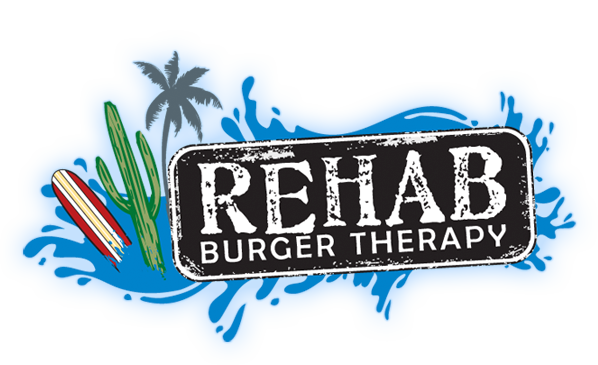Librium Abuse Clinic Karnes County
Home
Top Librium Abuse Clinic Karnes County Resources and Information Online
Librium Abuse Clinic Karnes County
It is one of the very grave problems facing modern society. For many drug addicts, in-patient treatment is viewed as the right first step to successful addiction treatment. Christian Rehabilitation Many of the men and women that join rehabilitation programs are at the tail end of a downward spiral, and often times these programs are an absolute last ray of hope for them. Psalms 50:15 “…Call upon Me in the day of trouble; I will deliver you, and you shall glorify Me.” Christian Rehab Centers that Celebrate Recovery Faith-based recovery is essential for Christians with addiction problems; without Jesus Christ in our lives, we might be lost in the vicious cycle of addiction forever.
Every Drug Rehab Center center in Florida has a different approach when it comes to the treatment for addiction. Call now to speak with a compassionate treatment expert.
More Information Around Methamphetamine Detox

Even more Info Around Alprazolam Abuse Treatment Clinic Karnes County
If you’re worried that a friend or loved one might be abusing drugs, look for the following warning signs: Physical warning signs of drug abuse or addiction Bloodshot eyes, pupils larger or smaller than usual Changes in appetite or sleep patterns Sudden weight loss or weight gain Deterioration of physical appearance, personal grooming habits Unusual smells on breath, body, or clothing Tremors, slurred speech, or impaired coordination Behavioral warning signs of drug abuse or addiction Drop in attendance and performance at work or school Unexplained financial problems; borrowing or stealing Engaging in secretive or suspicious behaviors Sudden change in friends, favorite hangouts, and hobbies Frequently getting into trouble (fights, accidents, illegal activities) Psychological warning signs of drug abuse or addiction Unexplained change in personality or attitude Sudden mood swings, irritability, or angry outbursts Periods of unusual hyperactivity, agitation, or giddiness Lack of motivation; appears lethargic or "spaced out" Appears fearful, anxious, or paranoid Warning signs of commonly abused drugs Marijuana: Glassy, red eyes; loud talking, inappropriate laughter followed by sleepiness; loss of interest, motivation; weight gain or loss. An intervention can also be conducted in the workplace environment with colleagues instead of family.
More Resources For Msir Abuse Clinic
Even once a person does recognize his or her addiction, the prospect of treatment may seem overwhelming—but it doesn’t have to be. Both drugs may be used as maintenance medications (taken for an indefinite period of time), or used as detoxification aids.[9] All available studies collected in the 2005 Australian National Evaluation of Pharmacotherapies for Opioid Dependence suggest that maintenance treatment is preferable,[9] with very high rates (79–100%)[9] of relapse within three months of detoxification from LAAM, buprenorphine, and methadone.[9][10] According to the National Institute on Drug Abuse (NIDA), patients stabilized on adequate, sustained doses of methadone or buprenorphine can keep their jobs, avoid crime and violence, and reduce their exposure to HIV and Hepatitis C by stopping or reducing injection drug use and drug-related high risk sexual behavior. Acamprosate has shown effectiveness for patients with severe dependence, helping them to maintain abstinence for several weeks or months.[13] Disulfiram (also called Antabuse) produces a very unpleasant reaction when drinking alcohol that includes flushing, nausea and palpitations.
Even more Info Around Msir Abuse Clinic Karnes County
He told me that he quit a month ago but recently I've seen the symptoms of addiction return. While experimenting with any kind of drug doesn’t automatically lead to drug abuse, early use is a risk factor for developing more serious drug abuse and addiction down the road. It has been argued, however, these findings may be attributable to the profound difference in therapist outlook between the two-factor and client-centered approaches, rather than to client-centered techniques per se.[31] The authors note two-factor theory involves stark disapproval of the clients' "irrational behavior" (p. 350); this notably negative outlook could explain the results. It is very difficult to recover from this serious behavioral disorder on one’s own. For you, their dropping out of school or college may seem a tragedy. Speak to a Drug Rehab Intake Coordination Specialist now. THE CHRISTIAN INTERVENTION: What if the Person does not want help for their addiction? Getting loved ones the help they need may be difficult, though. After understanding the matter’s depth and dynamics, they will refer the concerned to a correctional facility based on: the nature of drug use, the current stage of the patient the most appropriate treatment option 1-800-269-4237 National Inhalant Prevention Coalition (NIPC) Based in Tennessee, The National Inhalant Prevention Coalition hotline provides wide-ranged assistance by referring you to your nearby facilities.
Click Here for More Information
Previous Next
You may also like:
Go Rehab Desoto TX
Suboxone Abuse Treatment Programs Villas NJ
Diazepam Addiction Treatment Centers Amherst TX
Fiorinal Rehab Treatment Center Kirkwood PA
Clonazepam Detox North Grosvenordale CT
Christian Inpatient Treatment Centers Little Rock SC
Chlordiazepoxide Addiction Rehab Browder KY
Hydromorphone Rehab Mauricetown NJ
Di-gesic Abuse Treatment Programs Waterville WA
Subutex Rehab Center Near Me Smithfield RI
One Year Drug Rehab Program Ely NV
Addiction Recovery Maintenance Alma IL
Lsd Rehab Treatment Facility Jasper IN
Fioricet Addiction Rehab Clinic Austin MN
Antabuse Rehab Treatment Facility West Jefferson OH
Biphetamine Rehab Facility West Peterborough NH
Carisoprodol Abuse Treatment Programs Ware Neck VA
Alcohol Abuse Clinics Rover AR
Methylphenidate Addiction Rehab Clinics Hosford FL
Fiorinal Abuse Facility Tenakee Springs AK
Amobarbital Addiction Rehab Programs Cranston RI
Lorcet Addiction Treatment Kemp TX
Ultram Detox Centers Diana TX